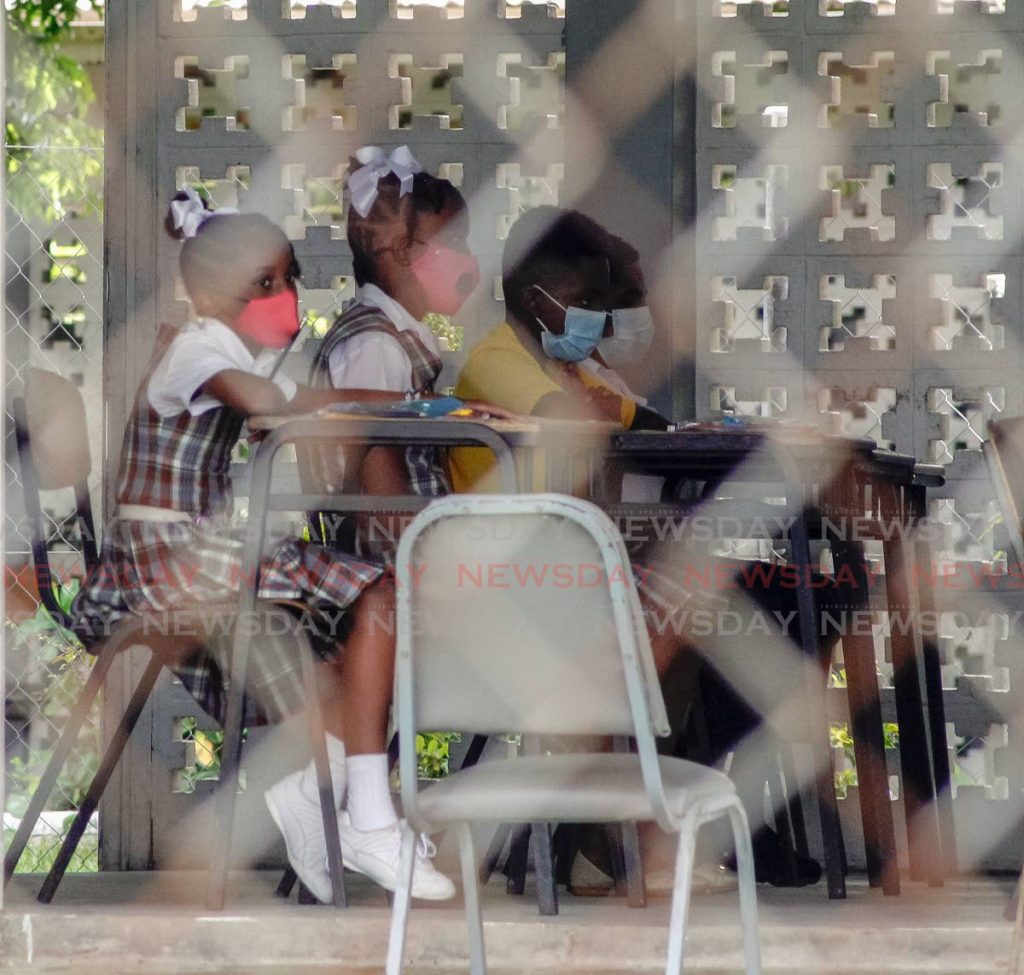Stakeholders support Education Ministry on physical return to school

Education stakeholders have said they support the Ministry of Education’s decision to send students – from Early Childhood Care and Education (ECCE) to university – back to the physical classroom.
On Wednesday, the ministry made several announcements on the reopening of schools.
It said ECCE students, along with standards 1-4 students, will resume physical attendance, on a rotation basis, in April.
Primary schools will continue to operate remotely in term two, except for standard five students, who will attend school physically from February.
Post-secondary and tertiary students will also return to physical classes from January.
After weeks of consultations with stakeholders, the ministry also confirmed students in forms 1-3 will return to the physical classroom in February 2022, on a rotation basis, adding students will be required to continue remote learning in January to allow schools time to plan for their return.
Forms 4-6 students, both vaccinated and unvaccinated, have had physical classes since September.
Chairman of the Association of Denominational Boards of Education Sharon Mangroo told Newsday in a brief phone interview that she supported the ministry’s decision, particularly the return of standard five students before their Secondary Entrance Examination (SEA), which the ministry announced would be on March 31.
She said, however, with regard to ECCE and primary school students, she could not say what could happen.
“We can’t tell until we start,” she said. “When we start in February, we will see how that goes. We can’t predict very far into the future.”
Secretary general of the Sanatan Dharma Maha Sabha Vijay Maharaj, in a phone interview with Newsday on Thursday, said he too agreed with the ministry’s decisions,which he said reflected the suggestions made by stakeholders at their meetings.
“I agree that school has to open and that covid must not dictate future of our children,” he said. “I would have thought SEA would have been pushed a little further, but from what I’ve gathered (the Caribbean Examination Council) CXC is concerned, so any queries would not be prolonged.”
The ministry’s statement said delaying the exam would result in many challenges, including difficulties in administering the CXC and SEA exams concurrently.
It said in 2020 and 2021 when the exams were pushed back, there were also issues with the uncertainty over students with transfer applications and the results of SEA reviews, which might result in students switching schools when already enrolled in form 1.
Maharaj said there are still concerns with regard to funding for sanitary eqquipment on school premises and questioned whether the ministry will restart the school feeding programme, as well as transportfor students.
He said many of his colleagues on the denominational boards agree with the ministry’s announcements.
With regard to ECCE students, however, he expressed some concern.
“I’ve always said I worry about children who have not been out to school. They don’t know how to socialise. (But) I think the time is right to bring out everyone.
“Trinidadians don’t understand social distancing. Children are seeing adults not social-distancing. They wear their masks, they sanitise – but they are not social-distancing.”
Overall, he said he was happy to be taking this step forward, but warned it will be challenging.
President of the Trinidad and Tobago Unified Teachers Association (TTUTA) Antonia Tekah-De Freitas told Newsday the association is still reviewing the plans and could not comment.


Comments
"Stakeholders support Education Ministry on physical return to school"